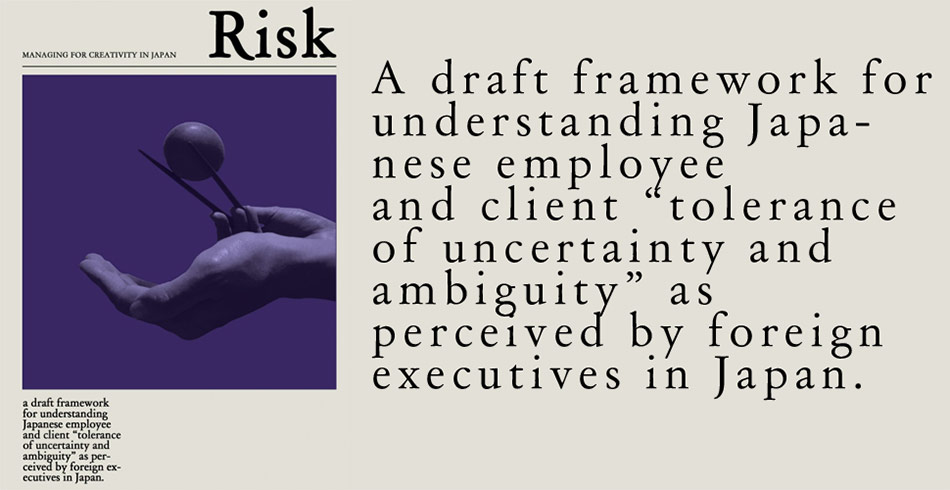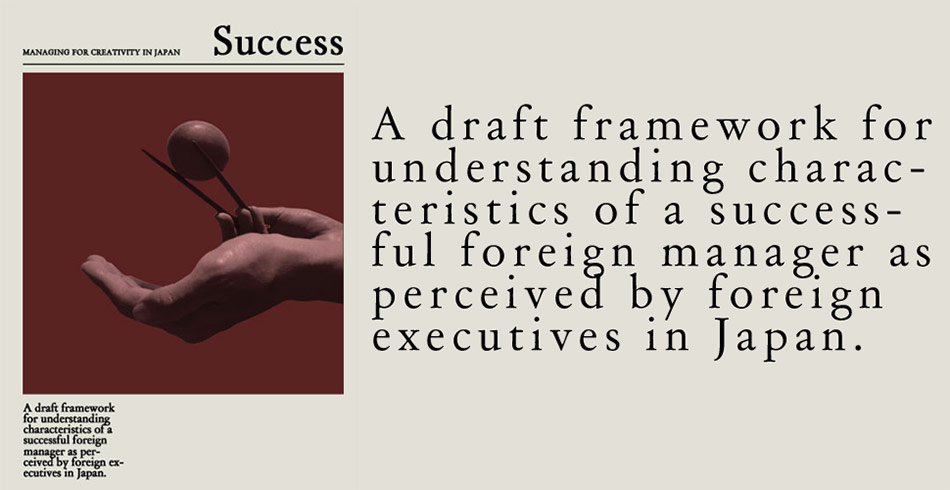“First of all, it’s a risk to work for foreigners. Two, it’s not a safe, established Japanese company – there isn’t that cliché status of working for a well known Japanese company. Even if you are an established company like Unilever or something people still think ‘oooh no, a foreign company’ even though they are like the biggest manufacturer in the world.
Also, people like security and hierarchy and they like to know their position. They don’t like to know that they have to do a bit of everything whereas in a foreign start-up they do have to do a bit of everything. Our people who do research do have to do client presentations and this, that and the other and you know what? If there are bowls in the sink at the end of the night we don’t have an office manager who just sits there all day waiting for people to go home so he can wash the dishes we wash our own dishes. For some people that is shocking.
Also, younger companies, especially foreign start-ups, tend to be a lot less structured. We don’t say ‘this is what you need to do, this is the checklist’ we tend to be a bit more creative and say ‘this is your time, we need you to achieve this…and what else can you come up with’. People don’t know what to do with that. (CB: So how have you dealt with that in your company?) There has to be a lot of mentoring and that’s an area that we really need to improve on. You have to mentor people, hold their hands, give them the confidence to say ‘I know I’m doing this but there is a possibility that I could do this or this’. In contrast, I think that people in London and New York are very keen to prove themselves. They also know that it’s not a job for life and they want to get the most out of it that they can and then go on to the next bigger, better place. Here the attitude is that you join a company and might possibly stay there for a long time. So perhaps they have a view that longevity is better than immediate results.”

